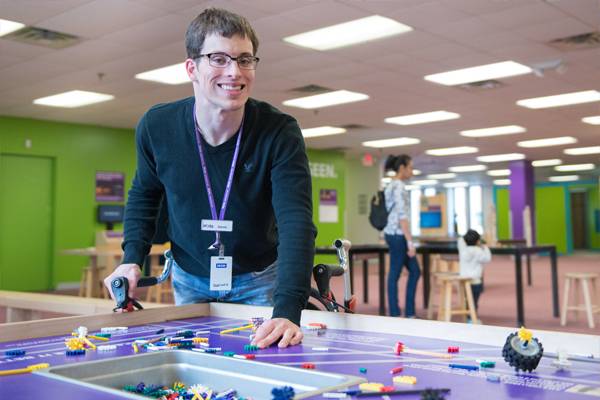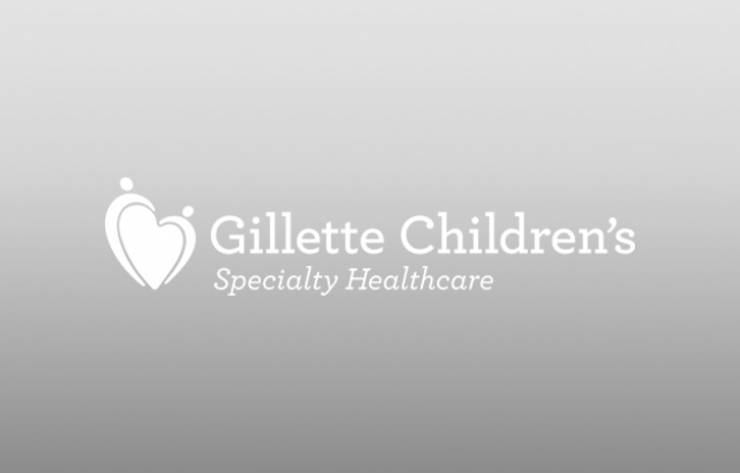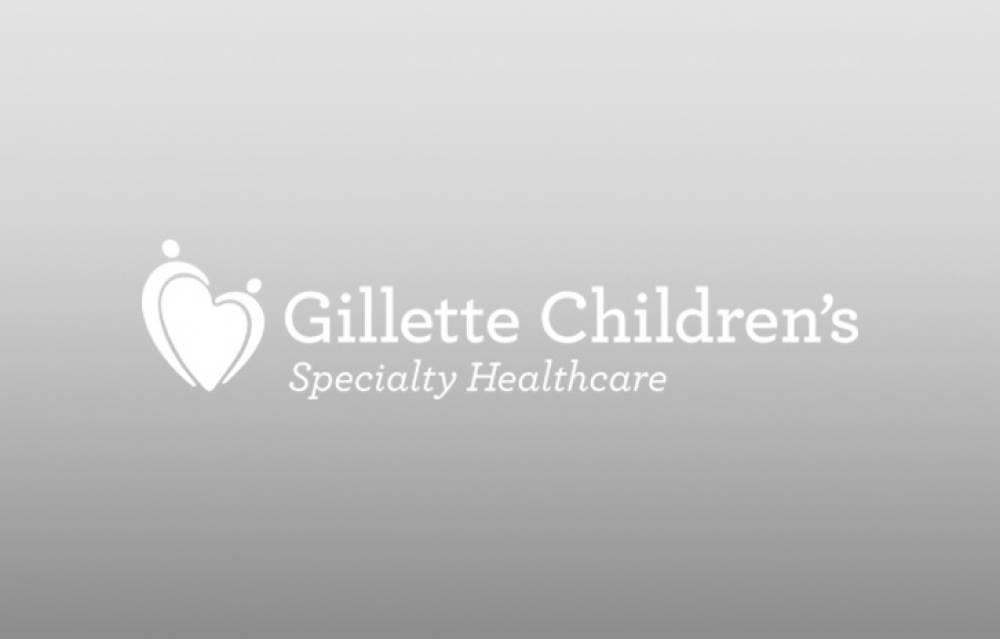-
{care_team_members status="Open|hide from care team page"}
-

{care_team_members:ct_first_name} {care_team_members:ct_last_name}
{care_team_members:ct_full_title}
{/care_team_members}
person:channel_short_name: {person:channel_short_name}
person:
title: {person:title}
-
{links}
{/links}
No category selected to display locations. Locations Dynamic
-
{locations}
- {locations:title} {/locations}
-
{widget}
{widget:widget_content}
- {widget:widget_content:tab_title} {/widget:widget_content} {/widget}
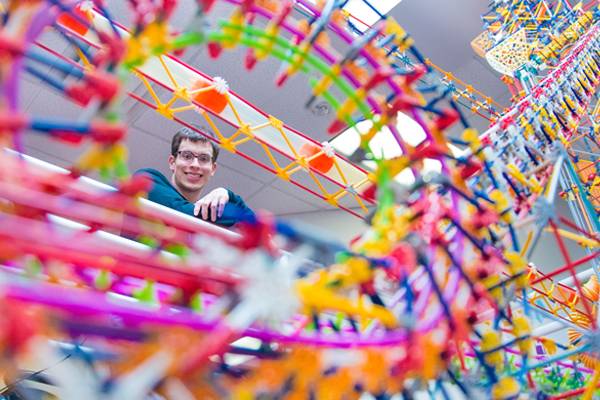
It’s 8:30 a.m. and all is quiet at The Works Museum, a hands-on engineering and design museum for kids located in Bloomington, Minnesota. The museum is closed and dark. Aaron Myers, 24, walks purposefully from exhibit to exhibit, turning on lights and readying the museum for the day. Prep work complete, he makes his way to the lobby to greet the museum’s first visitors. He’s like any other museum employee with one exception: Aaron is diagnosed with cerebral palsy.
Cerebral palsy, in the context of a children’s hospital like Gillette, often brings to mind cute kids who use wheelchairs or walkers. But here’s the thing about kids: They grow up. Kids who have cerebral palsy inevitably become adults who have cerebral palsy. As they move into adulthood, people like Aaron must face realities like landing a job, building social and professional relationships, even living independently—all while living with a disability.
Successful Transitions Start Early
The concept of a child who has significant medical needs one day growing up can sometimes be met with apprehension, even avoidance, by parents. Between their child’s medical appointments, therapies and surgical procedures, there isn’t much time for future planning. Yet it’s important that parents accept that adulthood will, one day, happen—and plan accordingly.
Preparing Aaron to successfully move into adulthood has been on Nancy Myers’ mind since his childhood. For Nancy, that means Aaron taking responsibility for his life and his medical care. She likens it to “passing the baton” from her to Aaron.
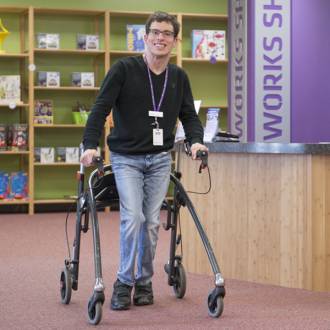
“As parents we always believed Aaron’s diagnosis wasn’t going to hold him back. We believed there were no limits to what he could do,” Myers says. “I started that mindset from day one, when he was very little, and I encouraged others on his care team to think the same way.”
Becky Nelson, a transition social worker at Gillette Children’s adult clinic, says empowering children who have disabilities to become independent adults should begin in early childhood. “Transition is a process, not an event. It’s a journey that begins at the day of diagnosis, and must be managed and planned for. Aaron’s mom did just that.”
Nelson notes that transitioning into adulthood is broader than simply transferring care to adult-focused providers. “It’s social skills, advocacy skills and everyday living skills, too.”
Passing the Baton, Anxiety-Free
A longtime Gillette patient, Aaron received rhizotomy surgery in 1997. He continued to receive care throughout his childhood and adolescence, and points to Mark Gormley, MD, as a favorite physician. When Aaron recently told Gormley about his desire to live independently, he suggested Aaron visit advanced practice provider Kathy Lindstrom in the Transition Clinic. The clinic connects patients with adult-focused providers.
Nelson acknowledges that Aaron’s transition to adulthood was underway well before he came to the Transition Clinic and credits his mother’s efforts. “She encouraged him in his social skills, she prepared him to advocate for himself and know when to ask for help, and she encouraged him to do everything he could for himself.”
Myers admits feeling apprehensive about Aaron’s move to adult-focused Gillette providers. But after their first visit she came away with a different feeling: comfort. More and more, she’s finding herself willingly releasing her grip on that metaphorical baton.
“I think it’s knowing there’s a resource he can go to, that is so multifunctional. The adult clinic covers so many different spectrums. It’s a comfort for me to be able to release that baton and know he has what it takes to run the balance of his race.”
Aaron adds that his move to independent living has been a goal since his high school graduation. He anticipates taking advantage of the independent living assessment, occupational therapy, and other resources the Gillette adult clinic offers.
A Workplace That Works for Aaron
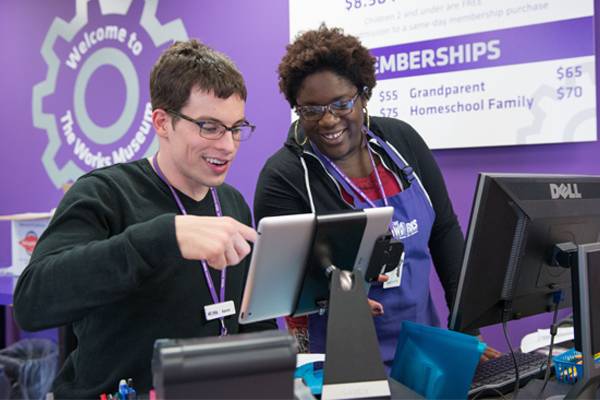
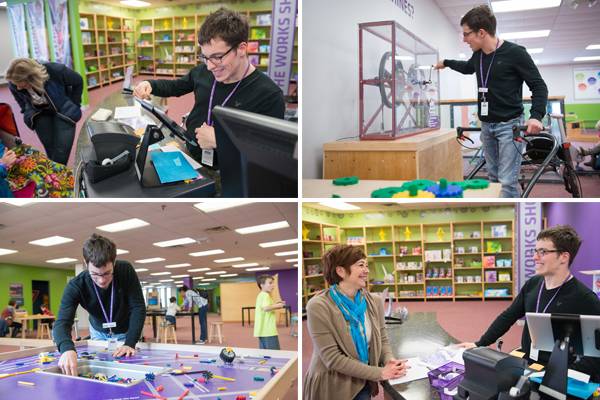
Aaron’s employment at The Works, as a member of the museum’s visitor experience staff, has been another big step in his transition process. He discovered The Works after participating in a vocational rehabilitation program that explored his strengths and aligned them with potential job opportunities. The program, called Discovery, also provided support during the application and interview process.
The Works offered Aaron his current job in October 2015 and he hasn’t looked back. “I view my coworkers as one big family and that’s what I really love about The Works,” he says. “We have a tight bond.”
Jill Measells is CEO of The Works. She recognizes Aaron as a favorite among museum visitors and adds that he brings valuable depth to the workplace. “Celebrating our differences makes for a richer organization. I think we wouldn’t be looking at things the same way here if not for Aaron. The joy he brings to the workplace translates to the visitors he serves.”
Reflecting on the obstacles he’s overcome, Aaron shares that he feels thankful. “I’ve been able to experience a quality of life that I might never have experienced if I’d been consumed by ‘what-ifs’ and negativity,” he says.
More than ever, he’s confident that he can run without dropping the baton.
